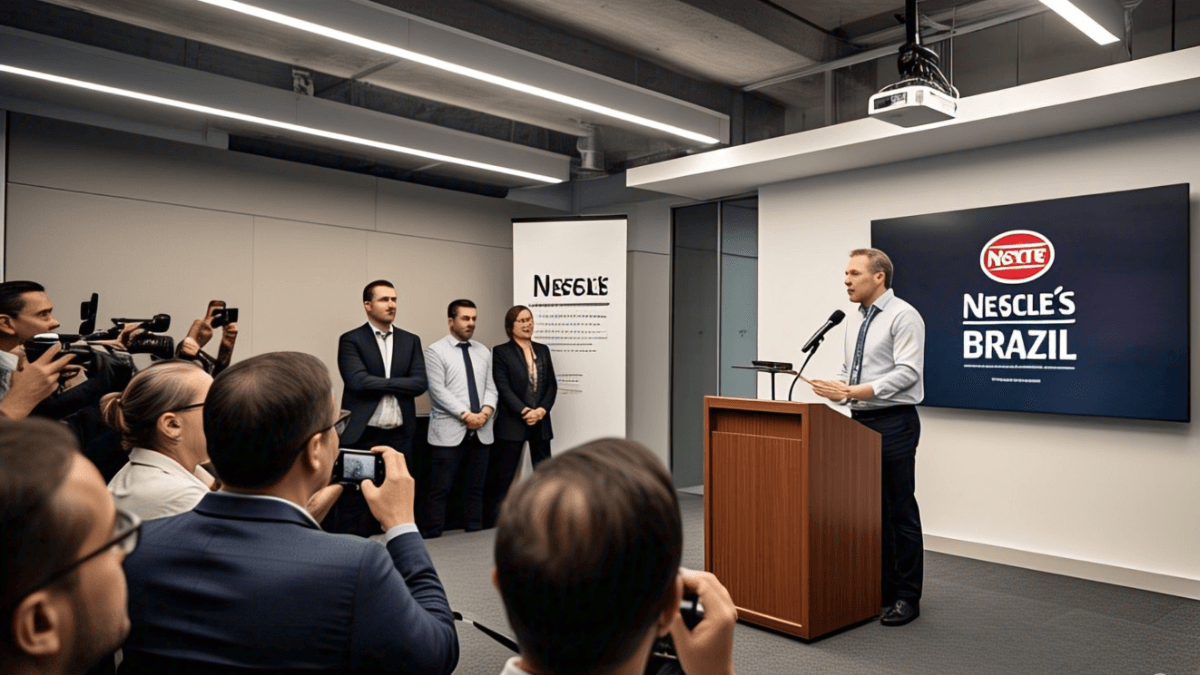Nestlé’s Nescafé announces an $89 million investment in Brazil to expand production and meet the rising demand for premium coffee, particularly among younger consumers.(ESM Magazine)
Table of Contents
- Introduction
- Investment Overview
- Expansion of Montes Claros Factory
- Growth of Nestlé Professional Coffee Machines
- Targeting Younger Consumers
- Market Growth Projections
- Sustainability and Regenerative Agriculture
- Implications for the U.S. Market
- Conclusion
- FAQs
Introduction
Nestlé’s Nescafé, a globally recognized coffee brand, has announced an additional investment of 500 million reais (approximately $88.7 million) in its Brazilian operations by 2028. This move underscores Nestlé’s commitment to strengthening its presence in Brazil, the world’s largest coffee producer and exporter. (Reuters)
Investment Overview
The new investment builds upon the 1 billion reais previously committed to Brazil, bringing Nestlé’s total planned investment in the country to 1.5 billion reais. The funds will be allocated towards:(Reuters, Al Arabiya English)
- Expanding the Montes Claros factory in Minas Gerais.
- Increasing the footprint of Nestlé Professional coffee machines across Brazil.
These initiatives aim to enhance production capacity and meet the growing demand for premium coffee products in the Brazilian market.
Expansion of Montes Claros Factory
Nestlé plans to expand its Montes Claros factory, located in the southeastern state of Minas Gerais. This facility plays a crucial role in Nescafé’s production, and its expansion is expected to boost output to cater to both domestic and international markets. (Reuters)
Growth of Nestlé Professional Coffee Machines
A significant portion of the investment will focus on increasing the presence of Nestlé Professional coffee machines in Brazil. The company aims to double the number of these machines to 44,000 within four years, targeting the out-of-home consumption market, including offices, restaurants, and cafes. (Reuters, Food Business Africa)
Targeting Younger Consumers
Nestlé’s strategy includes appealing to younger consumers who are driving the demand for premium and diverse coffee experiences. The company has observed that consumption growth among individuals under 24 has been ten times higher than among other age groups. These consumers are increasingly interested in iced coffee, coffee with cream, and other innovative variants. (Food Business Africa, Y94, Reuters)
Market Growth Projections
Nestlé anticipates that Nescafé’s sales in Brazil’s retail market will grow by up to 15% annually over the next four years. This growth rate significantly outpaces the general market’s forecasted growth of 5% to 6%. The company’s focus on premium products and out-of-home consumption is expected to contribute to this robust growth. (Venture Capital Post, Reuters)
Sustainability and Regenerative Agriculture
In addition to expanding its operations, Nestlé is committed to sustainable practices. The company has pledged to invest over $1 billion by 2030 to encourage farmers supplying its Nescafé brand to adopt regenerative agriculture methods. These practices aim to improve soil health, increase biodiversity, and enhance farmers’ livelihoods, ensuring the long-term sustainability of coffee production. (The Malaysian Reserve, AsiaNet)
Implications for the U.S. Market
Nestlé’s investment in Brazil has significant implications for the U.S. market. As the demand for premium coffee continues to rise among American consumers, particularly younger demographics, Nestlé’s expanded production capacity in Brazil positions the company to meet this growing demand effectively. The focus on sustainability also aligns with the values of environmentally conscious consumers in the U.S.
Conclusion
Nestlé’s additional $89 million investment in Brazil underscores its commitment to strengthening its position in the global coffee market. By expanding production capacity, targeting younger consumers, and emphasizing sustainability, Nestlé aims to meet the evolving demands of coffee consumers both in Brazil and internationally.
FAQs
Q: Why is Nestlé investing in Brazil?
A: Brazil is the world’s largest coffee producer and exporter. Nestlé’s investment aims to expand production capacity and meet the growing demand for premium coffee products.(Reuters)
Q: What is the focus of Nestlé’s investment?
A: The investment focuses on expanding the Montes Claros factory and increasing the presence of Nestlé Professional coffee machines across Brazil.(Reuters)
Q: How does this investment impact U.S. consumers?
A: The expanded production capacity in Brazil positions Nestlé to meet the rising demand for premium coffee among U.S. consumers, particularly younger demographics.(Food Business Africa)
Q: What sustainability initiatives is Nestlé undertaking?
A: Nestlé has pledged to invest over $1 billion by 2030 to promote regenerative agriculture among its coffee suppliers, aiming to improve soil health and ensure the long-term sustainability of coffee production.(The Malaysian Reserve)
Q: How is Nestlé targeting younger consumers?
A: Nestlé is focusing on offering diverse coffee experiences, such as iced coffee and flavored variants, to appeal to younger consumers who are driving the demand for premium coffee products.(Food Business Africa)
